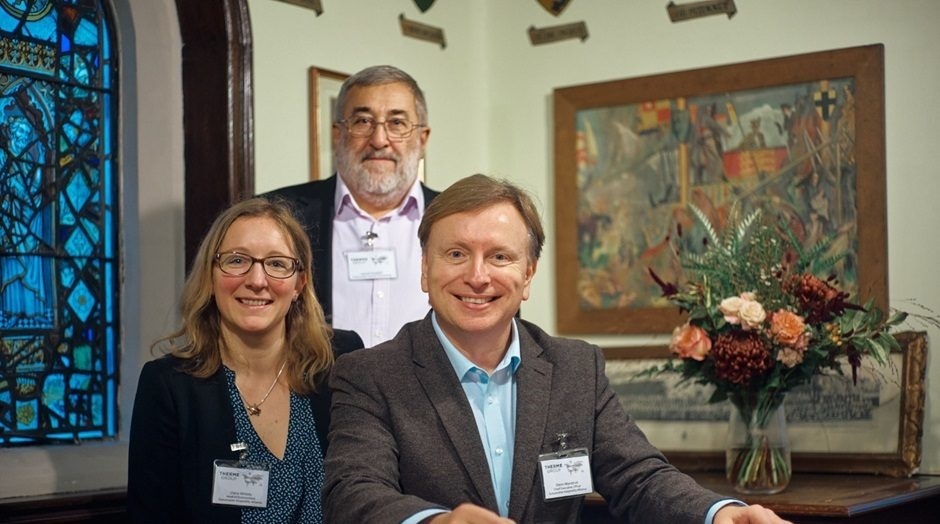On Sunday 6th November an updated Responsible Tourism Charter was signed where, in 1215, King John signed the Magna Carta Island*. The venue was secured for the signing by Therme. Stelian Iacob, Senior VP of Therme Group, said of the new partnership; “For Therme Group, supporting the historic launch of the new Responsible Tourism Charter shows the commitment we have to people and planet. We care deeply about the communities we serve and by being truthful we can all have a positive impact and build a better future.”

Sustainability is an aspiration, it will only be achieved if and when we take responsibility for making tourism sustainable. Responsibility drives sustainability. Responsible Tourism is about “making better places for people to live in and better places for people to visit.” Responsible Tourism requires operators, hoteliers, governments, communities and tourists to take responsibility for making tourism more sustainable.

Since 2002 and the publication of the Cape Town Declaration, the foundation document of the Responsible Tourism movement, there has been mounting concern about carbon emissions and climate change, plastic pollution, biodiversity extinction and inclusion. After 20 years, the Cape Town Declaration needed to be updated. Responsible Tourism’s ambition to use tourism to ‘make tourism better’ has widened its agenda to address issues that matter to local communities and tourists, for example, child protection and animal welfare.

Responsible Tourism is not the same as sustainable tourism. Responsibility requires that we say what we are doing to make tourism better and that we are transparent about what we achieve. Sustainability is the abstract aim, so vague that it cannot be called an objective. It is very often little more than greenwashing. Responsible Tourism is what results when we take responsibility as producers or consumers – it is about what we do and what we achieve. Transparency and reporting is core to Responsible Tourism.
The 2002 Cape Town Conference on Responsible Tourism in Destinations drew on the experience of outbound operators from the UK, international organisations, tourism businesses, and destination governments. There have now been 15 international conferences on Responsible Tourism in destinations, and knowledge about how, by taking responsibility, we can become more sustainable has been shared through the conferences, publications, Responsible Tourism News and the Responsible Tourism Partnership website.
The travel and tourism sector has developed many labels and logos asserting that this or that form of tourism, destination or business is “better” than the competitors. Responsible Tourism was not envisaged as a consumer-facing label, although it has been very successful for Responsible Travel. Actions speak louder than words, as Shakespeare reminds us, “What’s in a name? That which we call a rose/ By any other name would smell as sweet..” Responsible Tourism is a broad movement composed of everyone taking responsibility and making a demonstrable difference. Responsibility is what it takes to achieve sustainability and contribute to the UN’s Sustainable Development Goals (SDGs).
Our world is diverse, and diversity is fundamental to travel and tourism. Responsible Tourism takes many forms. Different destinations and stakeholders will have different priorities reflecting their geography, culture and environment. Local policies and guidelines will need to be developed through multi-stakeholder processes to develop Responsible Tourism in destinations. and achieve sustainable development through tourism.
Tourists, as consumers, expect to be able to make more sustainable choices but often struggle to find sustainable options. There is a particular responsibility on the producers, airlines, cruise lines, coaches, accommodation providers, tour companies, inbound and outbound, and attractions to decarbonise, create shared value, provide socially inclusive experiences and address biodiversity loss. Our objective is to make effortless sustainability possible for travellers and holidaymakers.
The polluter pays principle is necessary to ensure that the costs of externalities like excessive water consumption, waste, plastics and carbon emissions fall to the polluter rather than all of us. The price of polluting should be such that there is a strong incentive to cease polluting.
Overtourism is the opposite of Responsible Tourism. It is a generic term used to describe a cluster of negative impacts generated by tourism and addressing them is a particular priority for our sector. Overtourism occurs when hosts or guests, locals or visitors, feel that there are too many visitors and that the quality of life in the area or the quality of the experience has deteriorated unacceptably. The causes and issues are locally specific; however, tried and tested ways of addressing the issues are emerging.
*Magna Carta House was built by George Simon Harcourt in 1834 to commemorate the signing of Magna Carta. Magna Carta, which means ‘Great Charter’, was signed at Runnymede on 15th June 1215. Magna Carta Island is recognised as the place where King John met with the 25 rebellious barons who had camped across the Thames in Runnymede and who forced him to sign the charter. Richard de Montfichet was the owner of the island.













